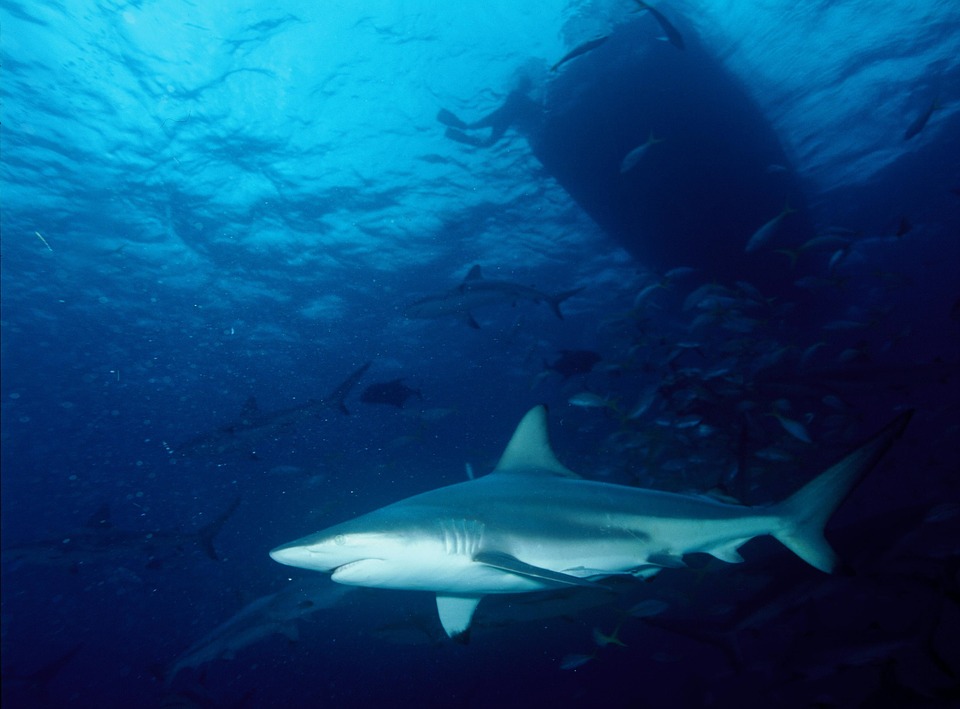 March 15, 2018 – WASHINGTON – The following was released by the Sustainable Shark Alliance:
March 15, 2018 – WASHINGTON – The following was released by the Sustainable Shark Alliance:
A new bipartisan bill introduced today in the U.S. House of Representatives supported by conservation groups, zoos, aquariums and industry advances global shark conservation by ensuring that all shark products imported into the United States meet the same high ethical and sustainability standards required of American fishermen.
The Sustainable Shark Fisheries and Trade Act of 2018, H.R. 5248, sponsored by Rep. Daniel Webster (R-FL), Rep. Ted Lieu (D-CA), Rep. Bill Posey (R-FL), Rep. Walter Jones (R-NC), Rep. Wm. Lacy Clay (D-MO), Rep. Darren Soto (D-FL), and Rep. Gus Bilirakis (R-FL), would create a formal and transparent certification program for countries seeking to import shark products into the United States. Foreign nations would be required to receive certification from the U.S. Secretary of Commerce confirming that they have an effective prohibition on the reprehensible and wasteful practice of shark finning, and have shark management policies comparable to those under the Magnuson-Stevens Act.
Unlike legislation (H.R. 1456/S.793) from Rep. Ed Royce (R-CA) and Sen. Cory Booker (D-NJ) ostensibly designed to improve global shark conservation by banning all trade of shark fins in the United States, the Sustainable Shark Fisheries and Trade Act would not punish American fishermen for bad actors in other parts of the world. Instead, it would leverage access to U.S. markets to incentivize other countries to eliminate shark finning and overfishing in their fisheries.
“Fishing is a long-standing profession and treasured American pastime,” said Rep. Webster. “Our responsibility is to balance the needs of the industry with conservation. This bill recognizes the sacrifices American fishermen have made to rebuild and sustain our shark populations. It encourages other nations wishing to export shark products to the United States to adhere to the same high standards for conservation and management.”
“We’d like to thank the Congressmen for introducing the Sustainable Shark Fisheries and Trade Act, which represents a better way forward for shark conservation,” said Bob Jones, executive director of the Southeastern Fisheries Association in Tallahassee, Florida. “This legislation goes a long way toward protecting U.S. fishing jobs and combatting the threats facing global shark stocks by promoting the successful model of American shark management.”
Our U.S. shark fisheries are among the best managed in the world. In a paper published last year, Dr. Robert Shiffman, a Liber Ero Postdoctoral Research Fellow at Simon Fraser University, and Dr. Robert Hueter, Director of the Center for Shark Research at Mote Marine Laboratory, wrote that the U.S. “has some of the most sustainable shark fisheries on Earth” and called the U.S. “a model of successful management.” Shark finning, the cruel practice of removing a shark’s fins at sea and discarding the rest of the shark, has been banned in the United States with industry support since the 1990s.
The Sustainable Shark Fisheries and Trade Act is supported by commercial fishing industry groups, including but not limited to the following members of Saving Seafood’s National Coalition for Fishing Communities: the Garden State Seafood Association, Southeastern Fisheries Association, North Carolina Fisheries Association, and Directed Sustainable Fisheries. It is also supported by the Louisiana Shrimp Association; environmental groups, such as the Wildlife Conservation Society; and zoo and aquarium facilities, such as Mote Marine Laboratory, Palm Beach Zoo, SeaWorld, Zoo Miami Foundation and the Florida Aquarium. The Florida Fish and Wildlife Conservation Commission also wrote a letter in support of this legislation.
About the Sustainable Shark Alliance
The Sustainable Shark Alliance (SSA) is a coalition of shark fishermen and seafood dealers that advocates for sustainable U.S. shark fisheries and supports healthy shark populations. The SSA stands behind U.S. shark fisheries as global leaders in successful shark management and conservation. The SSA is a member of Saving Seafood’s National Coalition for Fishing Communities.

